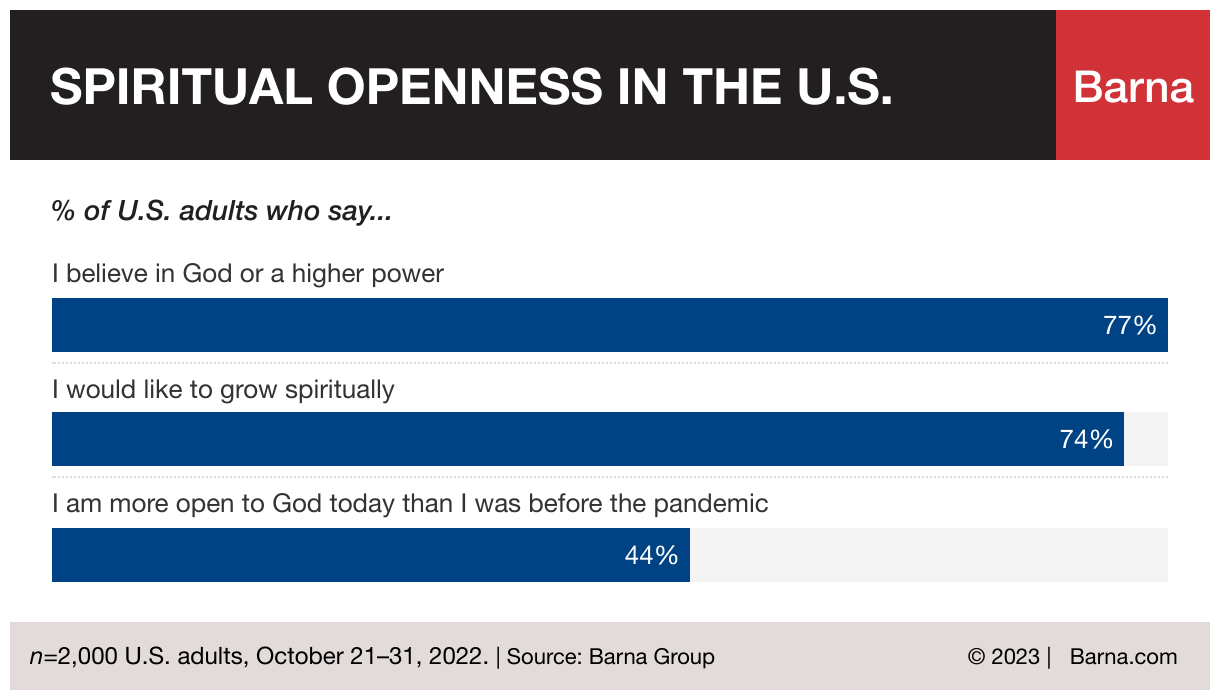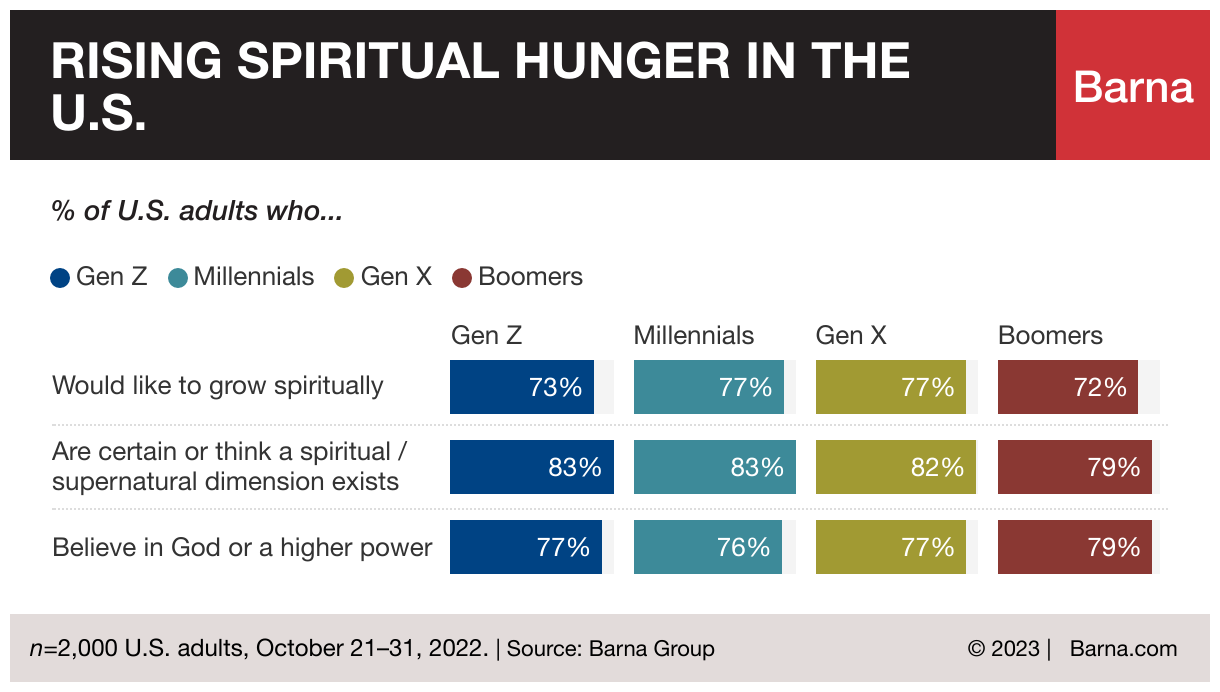You Call That Faith?
Mar 01, 2023
Spiritual hunger is growing: how do we respond?
Barna Group has been doing research for about four decades. In a recent survey, they speak about the Rising Spiritual Openness in America. While relatively recent evangelical Christianity has created a tight formula for how to become a Christ-follower, Jesus was broad in his description of the “how to” while very clear on the fact that he is the “who to.” The apparent decline in people of faith in recent decades is reversing. Today there is frustration with cantankerous politics, social polarization, and the dissipating of civil discourse. At the same time, there is hope that the future can be different and a hunger for spiritual reality.

In case you think this is the old folks back home on a spiritual quest, the positive data skews toward younger generations. “Overwhelmingly, Christian teens today say that Jesus still matters to them; 76 percent say “Jesus speaks to me in a way that is relevant to my life.” The Barna article goes on to say, “The teens in our study are not jaded or cynical. They are open to different faiths, including Christianity, and they’re open to friends, causes, and ideas.”

Just yesterday I read of an army officer with a series of characteristics that make him an interesting case study of an “open generation” person. First, he loved his servants and household. When one of them was ill to the point of death he was genuinely concerned. Second, he had built a positive reputation with the leaders in the town where he was posted, so much so that they were willing to go to bat for him. Third, he was a person who understood order and authority versus anarchy and disorder. His fourth characteristic was deep humility. I am speaking about the Roman Centurion from Capernaum who asked Jewish leaders to implore Jesus to come and save the life of his servant. Jesus spoke an astounding statement concerning this man: “I tell you, this is the most faith I have seen anywhere, even in Israel.”
What was this “most faith”? It was probably an alchemy of things. As leaders of organizations we mustn’t over-spiritualize this and miss a key truth: Loving care on behalf of one’s household, exercised with humility and an understanding of authority, was seen to be faith. Listen to these statements: “The officer loved his servant very much.” and “This officer is worthy of your help. He loves our people,” said the Jewish leaders of the Roman occupier.
The officer understood a principle of proximity: when the kingdom of God is near, good things happen.
Jesus was coming near the officer’s house when the officer sent friends to say, “Lord, you don’t need to do anything special for me. I am not good enough for you to come into my house. You need only to give the order, and my servant will be healed.”
Good things happen when Jesus is in the house. Just as the officer’s government brought an influence and the Pax Romana that touched everyone near it, so he recognized the power of proximity to Jesus.
The officer also understood a principle of authority: those under authority have authority. We fool ourselves into singing, “I did it my way” because we are all under one authority or another.
You need only to give the order, and my servant will be healed. I know this because I am a man under authority.
The officer recognized that all authority, whether military, legal, governmental, corporate, and more… all of this derives from the ultimate authority of God. Watch out for those who promote civil disorder under the guise of freedom: they may simply want an excuse to impose their solution, namely their authority and agenda.
What do you call faith? When you and I stand in the gap on behalf of the hurting ones in our household—family members, employees, investors, customers, and more—and we lovingly implore Jesus to do what only he can do and expect him to act… Jesus sees that as faith. And today’s generation is open to such intervention. Barna says:
“It doesn’t really matter where they are coming from, people are weary of the constant tension and division we see played out on the public stage and in our social media feeds, of hurtful rhetoric and of love with limits. But it seems that this coming generation still believes that there is a person who reminds us that there is a good and right way to live.”
Be the person who confidently and humbly makes the powerful Jesus proximate.

